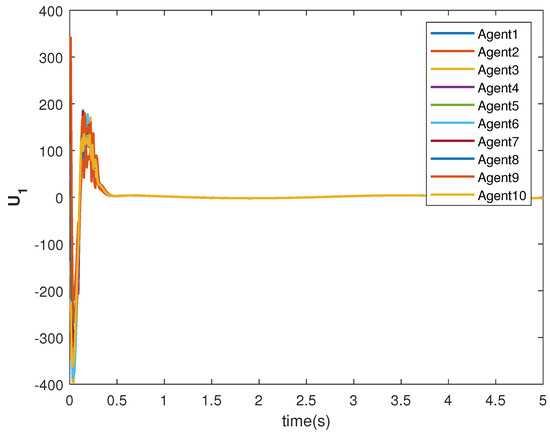Sensors and Intelligent Control Systems
Share This Topical Collection
Editor
 Prof. Dr. João Miguel da Costa Sousa
Prof. Dr. João Miguel da Costa Sousa
 Prof. Dr. João Miguel da Costa Sousa
Prof. Dr. João Miguel da Costa Sousa
E-Mail
Website
Collection Editor
Department of Mechanical Engineering, IDMEC, Instituto Superior Tecnico, Universidade de Lisboa, 1049-001 Lisboa, Portugal
Interests: computational intelligence and fuzzy systems; intelligent data analysis; smart industry; applications in energy and health care
Special Issues, Collections and Topics in MDPI journals
Topical Collection Information
Dear Colleagues,
Advanced intelligent control is a rapidly developing, complex, challenging field with great practical importance and potential. It is an inter-disciplinary field, which combines and extends theories and methods from control theory, computer science, and operations research areas with the aim of developing controllers that are highly adaptable to significant unanticipated changes.
This Topic Collection aims to present and communicate new trends in the design, control, and applications of real-time intelligent sensor system control using advanced intelligent control methods and techniques. Thus, we welcome the submission of original research papers and review articles that report recent advancements in intelligent control using intelligent sensors—especially for the technology applied in smart industry, smart homes, grid systems, healthcare and other intelligent systems.
Prof. Dr. João Miguel da Costa Sousa
Collection Editor
Manuscript Submission Information
Manuscripts should be submitted online at www.mdpi.com by registering and logging in to this website. Once you are registered, click here to go to the submission form. Manuscripts can be submitted until the deadline. All submissions that pass pre-check are peer-reviewed. Accepted papers will be published continuously in the journal (as soon as accepted) and will be listed together on the collection website. Research articles, review articles as well as short communications are invited. For planned papers, a title and short abstract (about 100 words) can be sent to the Editorial Office for announcement on this website.
Submitted manuscripts should not have been published previously, nor be under consideration for publication elsewhere (except conference proceedings papers). All manuscripts are thoroughly refereed through a single-blind peer-review process. A guide for authors and other relevant information for submission of manuscripts is available on the Instructions for Authors page. Sensors is an international peer-reviewed open access semimonthly journal published by MDPI.
Please visit the Instructions for Authors page before submitting a manuscript.
The Article Processing Charge (APC) for publication in this open access journal is 2600 CHF (Swiss Francs).
Submitted papers should be well formatted and use good English. Authors may use MDPI's
English editing service prior to publication or during author revisions.
Keywords
- artificial intelligence
- intelligent control
- intelligent sensor systems
- intelligent data analysis
- computational intelligence
- machine learning
- deep learning
- smart industry
- healthcare
Published Papers (2 papers)
Open AccessArticle
Improved Motion Artifact Correction in fNIRS Data by Combining Wavelet and Correlation-Based Signal Improvement
by
Hayder R. Al-Omairi, Sebastian Fudickar, Andreas Hein and Jochem W. Rieger
Viewed by 2779
Abstract
Functional near-infrared spectroscopy (fNIRS) is an optical non-invasive neuroimaging technique that allows participants to move relatively freely. However, head movements frequently cause optode movements relative to the head, leading to motion artifacts (MA) in the measured signal. Here, we propose an improved algorithmic
[...] Read more.
Functional near-infrared spectroscopy (fNIRS) is an optical non-invasive neuroimaging technique that allows participants to move relatively freely. However, head movements frequently cause optode movements relative to the head, leading to motion artifacts (MA) in the measured signal. Here, we propose an improved algorithmic approach for MA correction that combines wavelet and correlation-based signal improvement (WCBSI). We compare its MA correction accuracy to multiple established correction approaches (spline interpolation, spline-Savitzky–Golay filter, principal component analysis, targeted principal component analysis, robust locally weighted regression smoothing filter, wavelet filter, and correlation-based signal improvement) on real data. Therefore, we measured brain activity in 20 participants performing a hand-tapping task and simultaneously moving their head to produce MAs at different levels of severity. In order to obtain a “ground truth” brain activation, we added a condition in which only the tapping task was performed. We compared the MA correction performance among the algorithms on four predefined metrics (R,
RMSE,
MAPE, and Δ
AUC) and ranked the performances. The suggested WCBSI algorithm was the only one exceeding average performance (
p < 0.001), and it had the highest probability to be the best ranked algorithm (78.8% probability). Together, our results indicate that among all algorithms tested, our suggested WCBSI approach performed consistently favorably across all measures.
Full article
►▼
Show Figures
Open AccessArticle
Consensus Tracking of Nonlinear Agents Using Distributed Nonlinear Dynamic Inversion with Switching Leader-Follower Connection
by
Sabyasachi Mondal and Antonios Tsourdos
Viewed by 1342
Abstract
In this paper, a consensus tracking protocol for nonlinear agents is presented, which is based on the Nonlinear Dynamic Inversion (NDI) technique. Implementation of such a technique is new in the context of the consensus tracking problem. The tracking capability of nonlinear dynamic
[...] Read more.
In this paper, a consensus tracking protocol for nonlinear agents is presented, which is based on the Nonlinear Dynamic Inversion (NDI) technique. Implementation of such a technique is new in the context of the consensus tracking problem. The tracking capability of nonlinear dynamic inversion (NDI) is exploited for a leader-follower multi-agent scenario. We have provided all the mathematical details to establish its theoretical foundation. Additionally, a convergence study is provided to show the efficiency of the proposed controller. The performance of the proposed controller is evaluated in the presence of both (a) random switching topology among the agents and (b) random switching of leader–follower connections, which is realistic and not reported in the literature. The follower agents track various trajectories generated by a dynamic leader, which describes the tracking capability of the proposed controller. The results obtained from the simulation study show how efficiently this controller can handle the switching topology and switching leader-follower connections.
Full article
►▼
Show Figures








